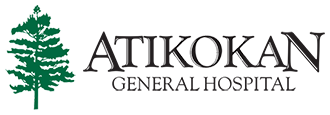Accessibility
Alternative Document FormatAlternative Document Format
April 2012
Download in PDF format
Atikokan General Hospital will provide any public document produced by the hospital in an alternative format upon request, unless it is not feasible to do so, upon which an alternative method will be determined by both parties.
- A request for a document in a particular alternate format will be made to the Business office or the appropriate department.
- Name, a contact number or email or address, requested format, name of document and date of request and name of employee who took the request will be recorded.
- All requests will be forwarded to the hospital’s Policy Coordinator.
- Documents will be provided in the following alternate formats within the organization:
- Plain text: Plain text is a way to represent generic text without attributes such as fonts (Verdana or Arial), subscripts, and boldface; due to this simplicity, it is readable and processable by almost any computer program. This makes it more accessible.
- Accessible Adobe Acrobat PDF: An electronic means of presenting information in order to enable various computer programs to convert the information into a “readable” format. Valuable for users with such disabilities as blindness or low vision.
- Diskette/CD-R: When a publication is put on computer diskette or CD-R, the user can gain access to the information through a computer connected either to a Braille printer, voice synthesizer, large print monitor or other system enabling access.
- Electronic Text: An electronic means of presenting information in order to enable various computer programs to convert the information into a “readable” format. The added functionality (such as searching within a text) and easy portability make e-text popular.
- Large Print: The enlargement of the point size for the contents of the print documents in order to enable use by persons with various degrees of visual impairment. Between twelve to eighteen font size, in Arial style is recommended.
- Clients will not be charged any additional costs for the provision of documents in alternate formats, either in-house or by a third party.
- If feasible, other formats, such as Braille, will be produced by a third party. The client will be notified that documents converted by a third party may take longer to produce.
- If the requested format is not feasible, both parties will agree upon an alternate method that takes into account the persons disability.
